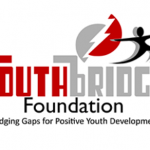
Youth Bridge Foundation Innovative Response
Education Inequality & Digital Divide Gaps Exposed by COVID-19
According to UNESCO, as of April 14, 2020, 188 countries around the world had closed schools nationwide, affecting over 1.5 billion learners and representing more than 91 percent of total enrolled learners as an adverse impact of COVID-19. Ghana like the rest of the world has never experienced such a dramatic impact on human capital investment and the consequences of COVID-19 on economic, social lives are grave.
Although Ghana Government, through Ministry of Education (MoE) in its response to COVID-19 is making substantial efforts to ensure remote continuing education opportunities, its capacity for quality learning— may affect gaps in student learning across communities of various income levels, and communities with different student performance levels.
Reliance on technology as an alternative to in-school instruction with a shift from classroom – and teacher-centred model has exposed the glaring digital divide that exists. Even when MoE is trying to offer remote learning opportunities at the Basic, Secondary and Tertiary levels using a combination of online and/or TV broadcast, a World Bank data report has shown that they will not reach most students as only 36 percent of residents of lower-middle income countries, for example, have access to the internet[1], a statistic that cannot easily be improved during the COVID-19 pandemic. For the basic and secondary school levels, a combination of online and broadcast to include radio will serve a majority of students as radio has the widest coverage at lower cost.
Youth Bridge Foundation Innovative Response Our partner, Youth Bridge Foundation (YBF), through a proposed model that emulates the tripartite model of Government-Civil Society-Private Sector Partnership, have urgently supported the governments’ response to school closures due to COVID-19 in effort to increase remote learning opportunities and provide guidance to teachers to … Read more
